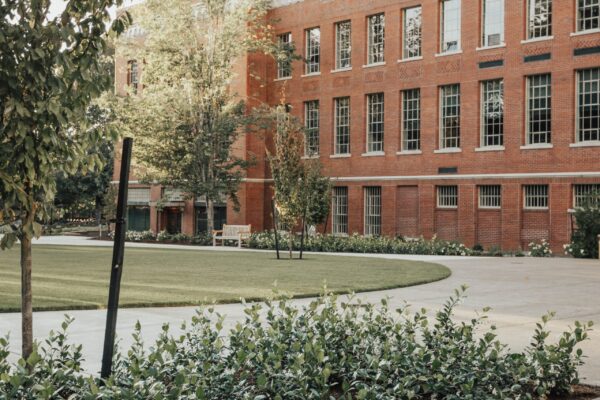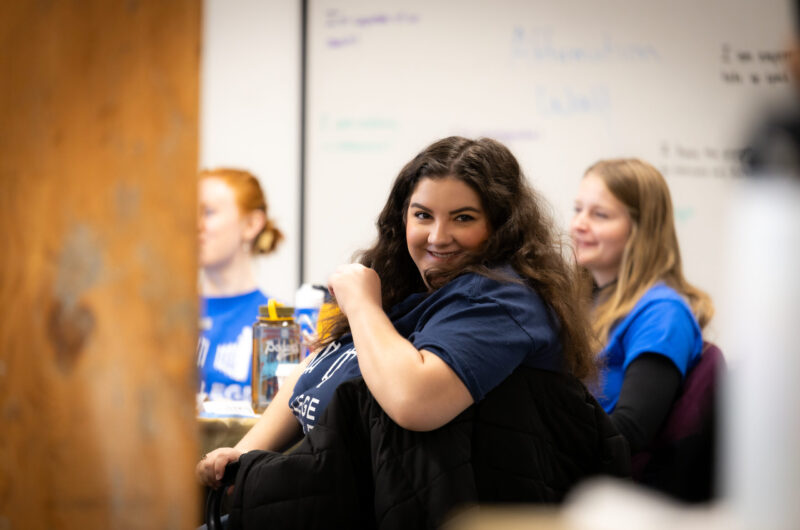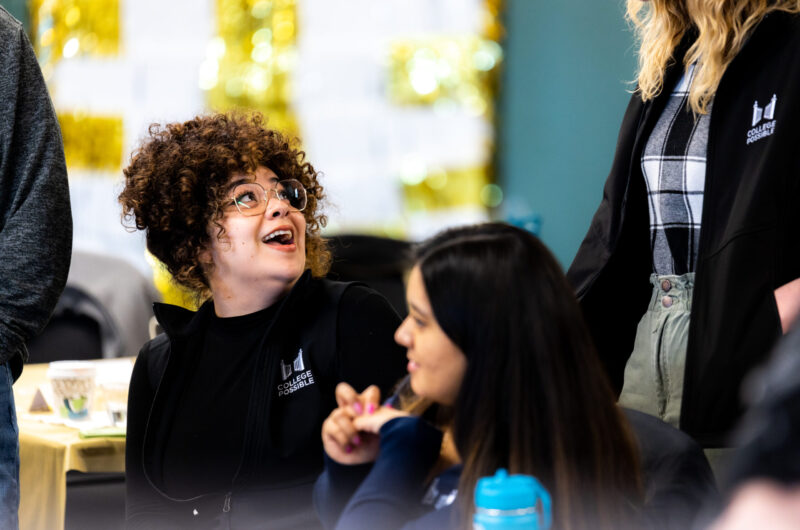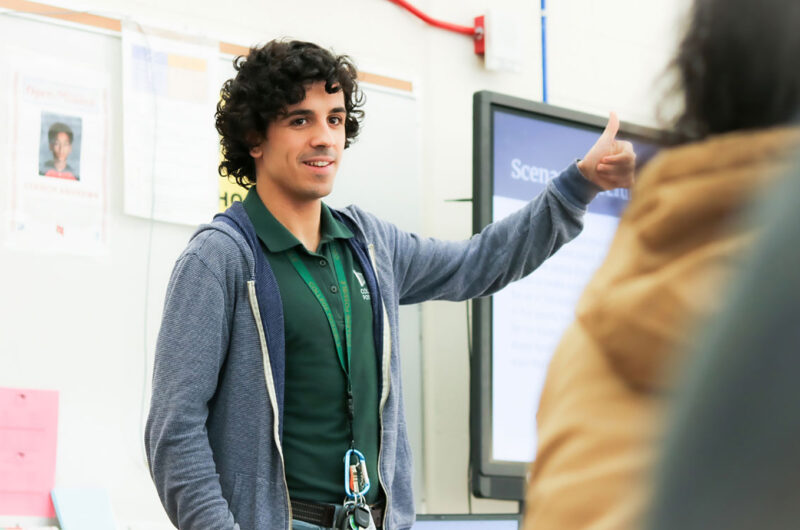A Q&A with Cassandra Rolin, former College Possible success coach (2016-2017) and current assistant director career coach at the College of Saint Benedict and St. John’s University.
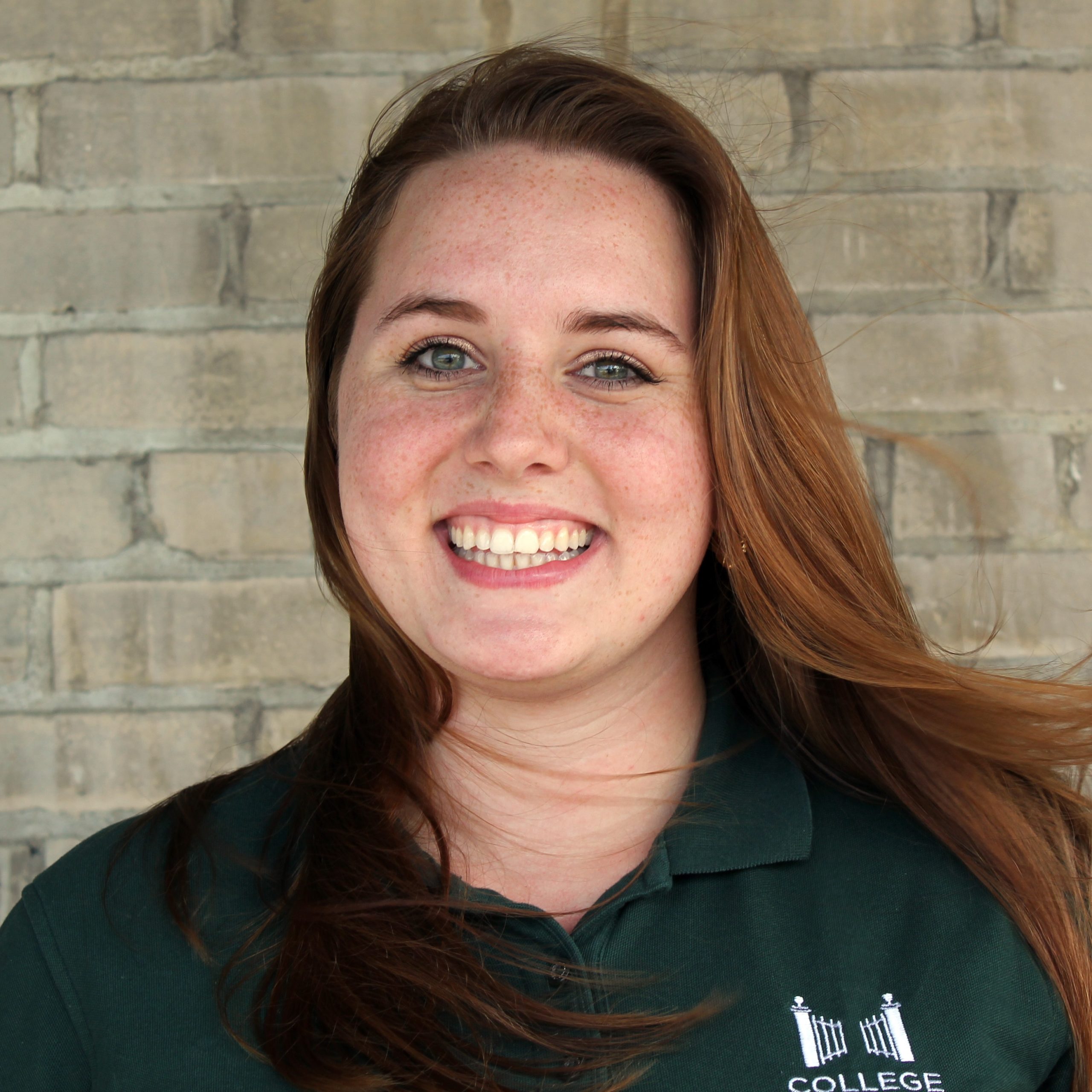 College Possible is a proud AmeriCorps organization, powered by talented and idealistic AmeriCorps members who serve as near-peer coaches to college students from low-income backgrounds. As recent college graduates, College Possible coaches are near in age to their students, building trust and a sense of shared experience and identity. With recent experiences in college applications and enrollment, as well as campus life, near-peer coaches have been shown to be effective in increasing college success. [1]
College Possible is a proud AmeriCorps organization, powered by talented and idealistic AmeriCorps members who serve as near-peer coaches to college students from low-income backgrounds. As recent college graduates, College Possible coaches are near in age to their students, building trust and a sense of shared experience and identity. With recent experiences in college applications and enrollment, as well as campus life, near-peer coaches have been shown to be effective in increasing college success. [1]
Interest in higher education and a strong desire to support students from low-income backgrounds motivates individuals to serve with AmeriCorps and College Possible. With extensive training and knowledge of on-campus resources and services, College Possible success coaches have the exposure and experience to be both qualified and competitive candidates for future jobs in higher education. The close and impactful relationships they create with students are one of many reasons College Possible Corps alumni pursue a career in higher education.
What is your position at the College of Saint Benedict and St. John’s University (CSB/SJU)? How long have you been working in higher education?
I am the assistant director career coach in our office of experience & professional development (XPD) at the College of Saint Benedict and St. John’s University. We coach students to explore their passions, reflect on their experiences, and connect to people and opportunities to live out meaningful lives. If you count College Possible, I have been working in higher education for four years and counting.
How did your service with AmeriCorps and College Possible prepare you for a career in higher education?
I think one of the biggest things that prepared me was working on the campus itself and engaging with the people who worked closely with college students on a day-to-day basis to see the culture in action. My term of service allowed me to be an integral member of the CSB/SJU campus community and make an impact to the students here. I loved (and still love) the coaching aspect of my job and being able to work through barriers to persistence alongside students and staff.
What was your experience like as a College Possible success coach?
If I had to pick a dream job – working as a College Possible success coach was it. I was pushed every day to make an impact, have lasting connections and relationships with students, and use a philosophy of coaching centered on engagement and a success mindset. I loved having College Possible’s benchmarks to meet, an organizational culture and structure that fit my personal values, and a team that was truly committed to student success. This gave me a drive like no other which infused passion, purpose and persistence all-in-one as a success coach to the students at CSB/SJU.
How did your service as a success coach inform your experience in graduate school and higher education?
Serving as a success coach provided me a wealth of knowledge in the field of higher education before I even attended graduate school which gave me a leg-up not only in the selection process for the Master of Science in College Counseling & Student Development Program at St. Cloud State University, but also during in-class sessions and field experiences. I had data and statistics to back up my work, information on various campus departments due to my term of service experiences, and a deeper understanding of pressing student issues and realities for underrepresented low-income college students even though I was a low-income college student myself and had my own lived experience of navigating higher education.
Was there any particular memory or moment throughout your time as a success coach that motivated you to pursue a career in higher education?
Every day I went into my office to serve students, it didn’t feel like “work.” It was fun. It was engaging. And that was because I was living out my intrinsic motivations for work which are – Influence Others (through coaching and workshops), Make an Impact (having students tell you how your support helped them persist), Evoke Recognition (found in the campaign benchmarks and reward system for student prizes, etc.), Improve (complete a FAFSA with a student or course registration – get a hold removed off a student account by triaging with the Registrar or Financial Aid etc.), and lastly to Meet the Needs of others (truly being of service to students whether through a listening ear or tackling a tangible issue).
I knew that I wanted to work with students for years, whether high school or college. The pivotal point for choosing higher education was how salient the data was and seeing the graduation rates for low-income students versus higher-income peers. There is an immense need for advocates and support within the system of higher education to support all students and I hope I can continue to be one of them.
By Sarah Calire
[1] Metropolitan Universities Vol. 28 No. 3 (Summer 2017), DOI: 10.18060/21539
